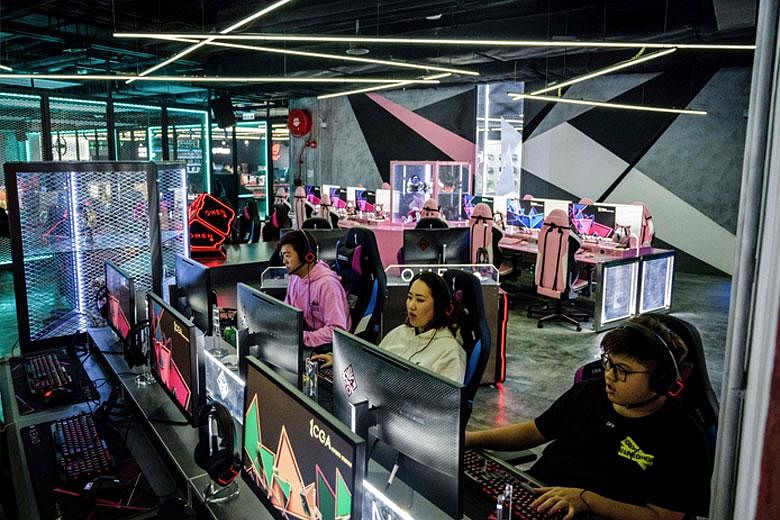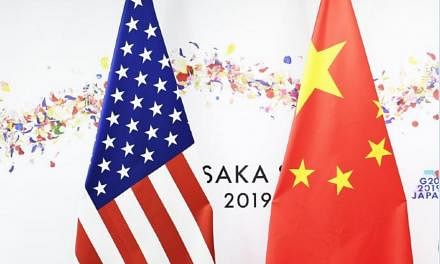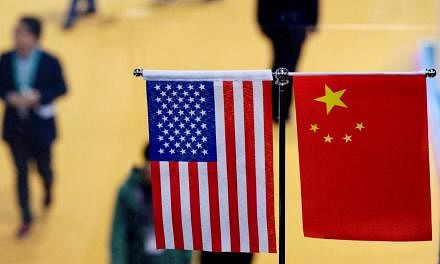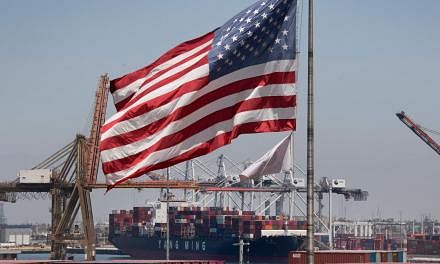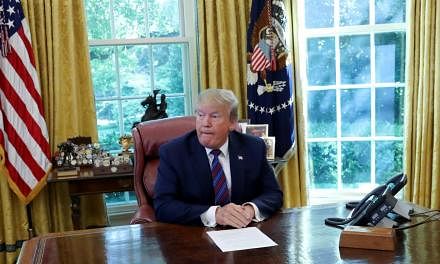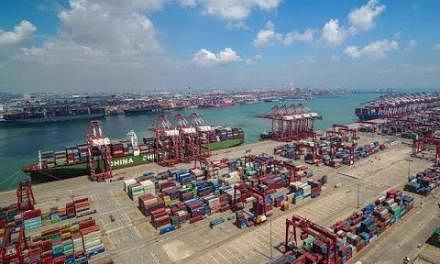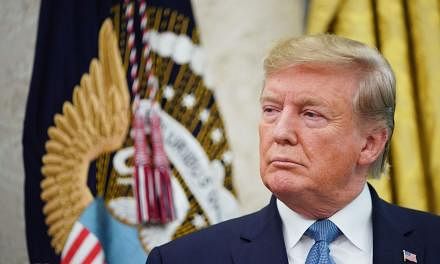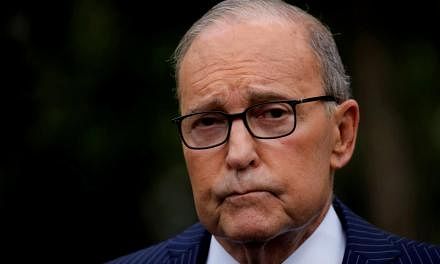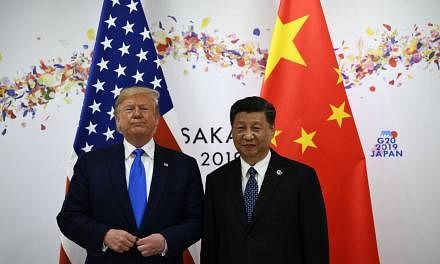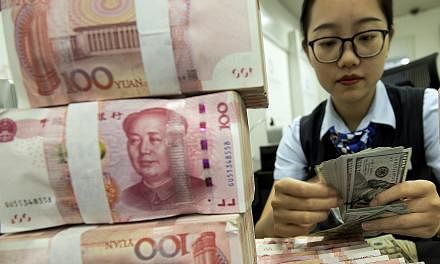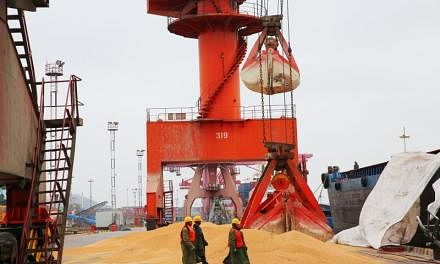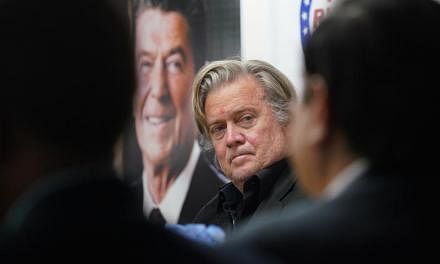WASHINGTON (BLOOMBERG) - When the American maker of the popular World of Warcraft video game sued a Chinese company for copying designs and storylines, little did anyone know the dispute would come to illustrate one of the biggest sticking points in the US-China trade war.
The case involved Activision Blizzard, a California company that sued China's Lilith Games in 2015 for the type of copyright infringement that the Trump administration says is rampant in the Asian nation.
The complaint - which was eventually dismissed - did not stop Blizzard from increasing its presence there and extending a partnership this year with China's NetEase.
If US tech firms have a moth-to-a-flame dilemma with China, game makers are the classic example.
The world's second-largest economy boasts an online population of 850 million and will remain the world's largest video-game market through at least 2021, according to industry research firm Newzoo.
President Donald Trump's trade war is designed to protect companies like Blizzard that are caught between accessing massive new markets in China and protecting their secrets.
An investigation by the US Trade Representative's Office last year that found China continued to violate intellectual property formed the basis for US tariffs on some US$250 billion (S$339 billion) of Chinese goods. China's treatment of intellectual property is at the centre of the current round of negotiations to end the trade war, with Mr Trump suggesting a deal could be reached soon.
Technology "is probably our single biggest competitive advantage and why we'll be number one for a long time if we protect our intellectual property," US Trade Representative Robert Lighthizer said in a congressional hearing last Wednesday.
China "knows full well that it's the key. Technology is what's going to determine who rules the future".
Mr Lighthizer is leading US efforts to negotiate the trade deal with Beijing that would also allow US companies to operate in China without local partners.
It is nearly impossible for foreign tech companies to enter China without licensing their games to domestic firms, though no such restriction exists on Chinese companies operating in America.
Not surprisingly, the licensing deals have been a cash boon to Chinese companies.
China's Tencent has become the world's largest gaming firm in terms of revenue, while Chinese firms have been behind 70 per cent of industry acquisitions since 2015, according to a May 2018 report by the US-China Economic and Security Review Commission, which the US Congress created.
The study also says piracy of American-made games is widespread.
China has publicly denied US charges that it is soft on intellectual-property theft, insisting that it has lived up to commitments it made when it joined the World Trade Organisation in 2001, including by establishing special courts.
The Chinese Embassy's press office in Washington did not respond to an e-mailed request for comment.
But the investigation by Mr Lighthizer's office alleged that China's intellectual-property and joint-venture policies have caused billions of dollars in damage to the United States.
The White House has threatened to raise duties even higher if it cannot reach a trade agreement with Beijing.
Mr Lighthizer's office has identified the gaming industry as a victim of Chinese infringement practices. Some US gaming companies have subtly applauded the White House efforts.
"Our government is focused on the fact that taking care of intellectual property, which is America's second biggest export after aerospace, is important," Mr Strauss Zelnick, chief executive officer of New York-based gaming company Take-Two Interactive Software, said in a Feb 6 earnings call when asked about China.
"You'll begin to see some progress there," Mr Zelnick said. "If regulations soften, there'd be an even greater opportunity. But we understand we have to work within the environment that we find ourselves in there."
That environment may start improving soon. The Chinese government late last year announced new sanctions on companies engaging in intellectual-property theft.
However, Beijing may be reluctant to further tighten laws until it sees its own companies as victims of intellectual-property theft, according to Mr Scott Kennedy, a China expert at the Centre for Strategic and International Studies.
"The government still views its market as an IP consumer rather than an IP creator," he said. "Until this changes, it's going to be hard to get China to enforce foreign IP rights."
